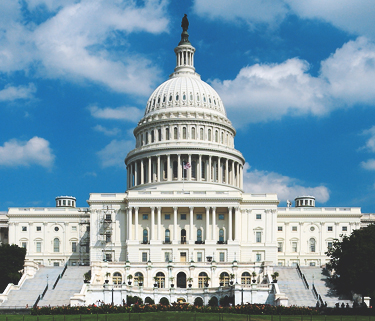How the Government Shutdown Could Impact People With Disabilities
If Congress fails to reach a deal to fund the federal government by September 30, the government will shut down, which means federal agencies will cease non-essential operations until a deal is reached. We want you to be fully informed about how the looming government shutdown could impact you!
Many people with disabilities rely on a range of public programs, such as Social Security, Medicaid, Medicare, Supplemental Nutritional Assistance Programs (SNAP), and others that support their daily needs, health, and independence. They also benefit from programs that provide housing assistance, job training, special education, childcare, and developmental disability programs for supports and services. What’s more, many federal agencies enforce critical laws against disability discrimination, including the Americans with Disabilities Act.
Here’s what we want you to know. Social Security and Supplemental Security Income (SSI) payments will continue during a shutdown. While these critical needs will continue to be met, a prolonged shutdown could exacerbate ongoing customer service issues created by the underfunding of the Social Security Administration (SSA). Many people with disabilities need SSA’s support in navigating benefits and already endure long wait times for disability determinations.
Many of the other programs that people with disabilities rely on are administered by state governments, with critical oversight and administration conducted by the federal government. Currently, all 90 million Medicaid beneficiaries must go through a renewal process following the end of the COVID-19 public health emergency. According to the Kaiser Family Foundation, nearly three-quarters of all people losing Medicaid had their coverage terminated for procedural reasons. CMS recently took the major step of making 30 states pause their renewal process for failing to comply with federal law. The lack of this critical federal oversight could result in many more people with disabilities unjustly losing their Medicaid benefits. Make sure you don’t lose yours.
There is also considerable concern about the impact of the childcare funding crisis resulting in tens of thousands of childcare centers potentially closing and millions of kids potentially losing this critical avenue for early development. This is happening because of the expiration of pandemic emergency relief funds that were used to support struggling daycare centers. Families already experience significant hardship finding childcare options for kids with disabilities, which could worsen without action by Congress.
Looking to the future, a government shutdown raises the potential for additional cuts to government funding in order to reach a deal to reopen. The agreement to stop a default in May 2023 already set new caps on spending for FY 2024 and 2025. Those agreed-upon caps undermine critical programs and services. The Social Security Administration, for example, is facing a customer service crisis and programs like the Individuals with Disabilities Education Act (IDEA), which ensures students with a disability are given a free appropriate public education, have never been fully funded.
The reality is that funding for programs for people with disabilities needs to be significantly expanded, not cut. A government shutdown creates the political environment for cuts, going in the wrong direction for people with disabilities and their families. If that happens, you can expect that The Arc will use its power and influence to fight back.








